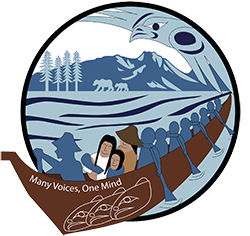Cultural Appropriation
Cultural appropriation is the act of taking from someone else’s culture without their consent. This can include using aspects of traditional knowledge or cultural expressions, as well as particular music, dances, regalia, cuisine, symbols, ceremonies, artistic expressions and so on.
Cultural appropriation often reflects a racialized power imbalance between two cultures, the taking of culture — rather than the consensual sharing of it — which often, in turn, involves exploitation of one group over another. Cultural appropriation disregards the sacred meanings and stories associated with those practices or items that are being taken.
For Indigenous peoples, cultural appropriation is best understood within the context of cultural genocide and assimilation. Indigenous ways of life have been threatened since contact, most notably during the residential school era. For years, laws prohibited Indigenous peoples from practicing their cultures and engaging in ceremonies. (See also Indian Act).
- Make sure the items you are purchasing are actually created and sold by Indigenous artists. If you are unsure, ask the vendor or verify the author's/artist's/creator's bio. If it does not specifically say that the products are authentically Indigenous, supporting their business is an act of cultural appropriation.
- Shop with Indigenous owned businesses.
- Support local Indigenous artists.
- Use the Authentic First Peoples Resources and searchable database.
